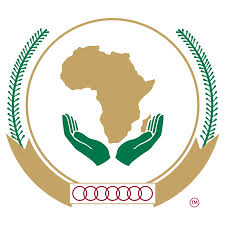The Africa Centre for Disease Control and Prevention (Africa CDC) has called for stronger community-based surveillance, improved vaccination coverage, and sustained cross-border collaboration to curb the spread of ongoing outbreaks across the continent.
Prof. Yap Boum, Incident Manager for Health Emergencies at the Africa CDC, made the call on Friday during the agency’s weekly news conference, which reviewed the epidemiological situation of Mpox, cholera, Ebola, Rift Valley fever, malaria, and other priority diseases across Africa.
Boum said that while significant progress had been recorded, with Ebola in the Democratic Republic of Congo (DRC) nearing its 42-day countdown to the end of the outbreak, vigilance remained critical.
“We are in the countdown phase for Ebola in Bulape, but this does not mean we are out of the outbreak. We must strengthen monitoring, surveillance, and community engagement to sustain progress,” he said.
He noted that more than 37,000 people had been vaccinated against Ebola, including healthcare workers and children, adding that Africa CDC and partners were supporting preventive vaccination in other provinces and neighbouring countries to enhance preparedness.
On Mpox, he said the continent had recorded an 80 per cent decline from its peak, with 13 countries having rolled out vaccination campaigns reaching over 1.5 million people.
However, he expressed concern about rising cases in Kenya, Liberia, and Ghana, where active transmission persists.
“We are not resting until all member states reach acceptable thresholds for transition to national surveillance.
“We are supporting Kenya with 20,000 additional vaccine doses and helping to strengthen community-level response and communication,” he said.
He commended Namibia’s early and coordinated response, which limited spread to two confirmed cases, saying it demonstrated how rapid action and strong leadership could stop transmission “at the source.”
He described cholera as Africa’s “most challenging disease,” with 297,394 cases and 6,084 deaths reported across 23 member states so far in 2025.
He warned that the rainy season could worsen transmission in several high-burden countries, including Angola, Burundi, Sudan, and South Sudan, unless multisectoral interventions, especially in water, sanitation, and hygiene (WASH), were urgently scaled up.
“We must move beyond emergency response and invest in infrastructure that guarantees access to clean water and sanitation.
“Cholera is a disease of inequity, and stopping it requires a whole-of-government and whole-of-society approach,” he said.
Boum reiterated the agency’s commitment to supporting national public health institutes (NPHIs) to improve community-based surveillance and ensure timely outbreak detection and control.
“Our goal is to build resilient systems that prevent future outbreaks rather than react to them. Strong community engagement, rapid response, and cross-border coordination remain our best tools,” he said.
He also highlighted ongoing efforts to strengthen malaria prevention through the distribution of bed nets and environmental sanitation, particularly in Southern Africa, where seasonal increases have been recorded.
On data management, speaking on behalf of Africa CDC’s Surveillance and Disease Intelligence Unit, Dr Kyeng Mercy, said the agency had launched a continental data architecture and health information exchange policyto ensure privacy, data protection, and harmonised reporting across member states.
The News Agency of Nigeria (NAN), reports that take Africa CDC, through its Incident Management Support Team (IMST), coordinates outbreak preparedness and response across member states.
Working closely with the World Health Organisation (WHO), national public health institutes, and regional partners, the IMST provides technical guidance, emergency logistics, and training to strengthen Africa’s capacity to detect, prevent, and control disease outbreaks



